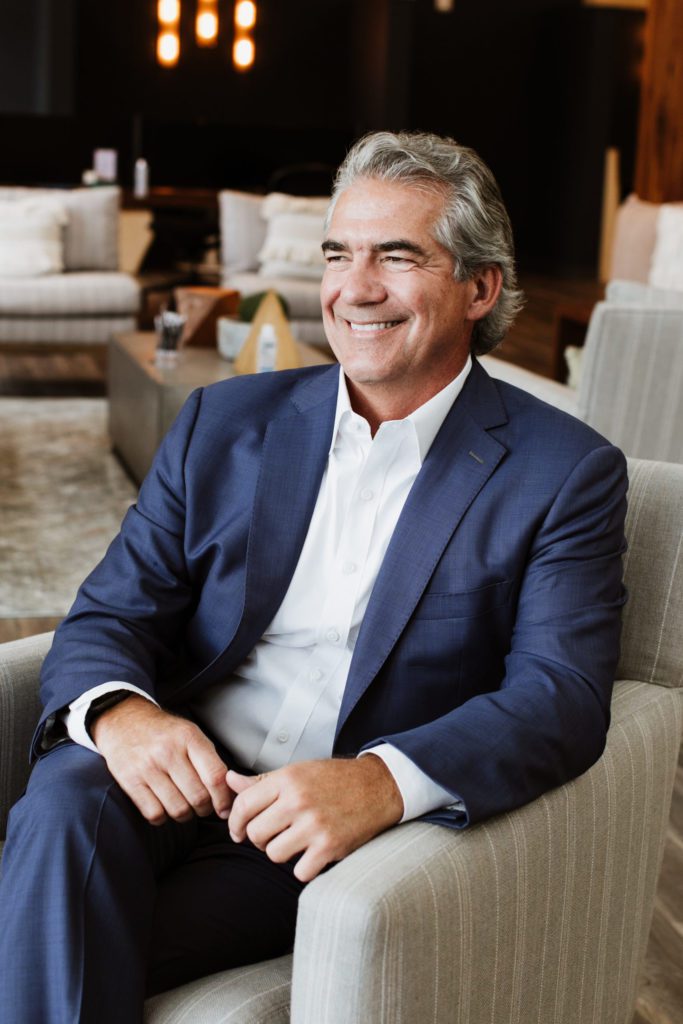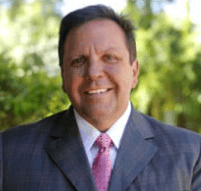

When Joel Manby took over as CEO of SeaWorld, the company was smack in the middle of national controversy following the 2013 release of the documentary Blackfish.
One of SeaWorld’s most vocal critics was Wayne Pacelle, the CEO of the Humane Society of the United States, an organization seeking to close SeaWorld in California. “Basically, I was trained not to like him,” Manby told Corporate Competitor Podcast. “I was told I shouldn’t trust him or like him. It was ‘us versus them.’ I’m naturally against that philosophy. I look for the good in everybody.”
Apparently, Pacelle felt the same way. The two leaders decided to meet secretly in the “smokey corners of pubs,” to discover whether their two organizations might find enough common ground to do some problem-solving.
“We couldn’t even meet in each other’s offices because our organizations would go crazy if they saw us reaching out to each other,” Manby said. Good thing the two leaders trusted their instinct for collaboration more than the party line. They ultimately discovered in one another a likeable, admirable and trustworthy opposite. “We learned we had a lot more in common than not,” added Manby.
By breaking out of their institutional identities, the two forged a partnership that ultimately resulted in a win-win for both organizations. In exchange for SeaWorld’s ceasing its killer whale breeding program, the Humane Society would support SeaWorld publicly as a “good organization.”
Manby recalled: “So when we went on air, national television and all the talk shows — Good Morning America, CBS Good Morning — Wayne Pacelle was sitting by my side and said, ‘This is a good company.’” As a result of their partnership, SeaWorld’s favorability rating rose from 35 percent to 70 percent positive in roughly a six-month period. Sales started coming back and trust in the family entertainment venue began to return as well.
“SeaWorld is worth more today than it was before Blackfish came out,” Manby noted. “But the point is that whether you agree with that decision or not, and it was a tough one, Wayne and I learned to dialogue, we learned to not hate each other, and we were forced to trust each other. And it worked out to something that I think is better for America and better for the animals.”
At a time when our civic and business cultures are polarized by intolerance and endless “monologues” and feedback loops, Manby offers a valuable lesson in the power and efficacy of dialogue. “What we are dealing with in America is way too complex to solve with sound bytes,” said Manby. “To get answers, we need dialogue, not more monologue.”
We hope you’ll join us for what promises to be a great dialogue about winning business cultures and learning from those we may least expect to teach us something.
YOU WILL LEARN:
4:00 How to create a culture of love (HR Director approved).
5:00 The difference between DO goals and BE goals — and why the latter matters.
10:30 How guarding Magic Johnson taught Joel how to focus on his strengths.
22:00 What it means to be a servant leader.
25:00 Dolly Parton’s lesson in getting honest feedback.
27:30 How his “Undercover Boss” episode changed his leadership philosophy forever.
31:00 The importance of open dialogue.
Check out the full Corporate Competitor Podcast interview archive and subscribe to new episodes.

0

1:00 - 5:00 pm
Over 70% of Executives Surveyed Agree: Many Strategic Planning Efforts Lack Systematic Approach Tips for Enhancing Your Strategic Planning Process
Executives expressed frustration with their current strategic planning process. Issues include:
Steve Rutan and Denise Harrison have put together an afternoon workshop that will provide the tools you need to address these concerns. They have worked with hundreds of executives to develop a systematic approach that will enable your team to make better decisions during strategic planning. Steve and Denise will walk you through exercises for prioritizing your lists and steps that will reset and reinvigorate your process. This will be a hands-on workshop that will enable you to think about your business as you use the tools that are being presented. If you are ready for a Strategic Planning tune-up, select this workshop in your registration form. The additional fee of $695 will be added to your total.

2:00 - 5:00 pm
Female leaders face the same issues all leaders do, but they often face additional challenges too. In this peer session, we will facilitate a discussion of best practices and how to overcome common barriers to help women leaders be more effective within and outside their organizations.
Limited space available.

10:30 - 5:00 pm
General’s Retreat at Hermitage Golf Course
Sponsored by UBS
General’s Retreat, built in 1986 with architect Gary Roger Baird, has been voted the “Best Golf Course in Nashville” and is a “must play” when visiting the Nashville, Tennessee area. With the beautiful setting along the Cumberland River, golfers of all capabilities will thoroughly enjoy the golf, scenery and hospitality.
The golf outing fee includes transportation to and from the hotel, greens/cart fees, use of practice facilities, and boxed lunch. The bus will leave the hotel at 10:30 am for a noon shotgun start and return to the hotel after the cocktail reception following the completion of the round.